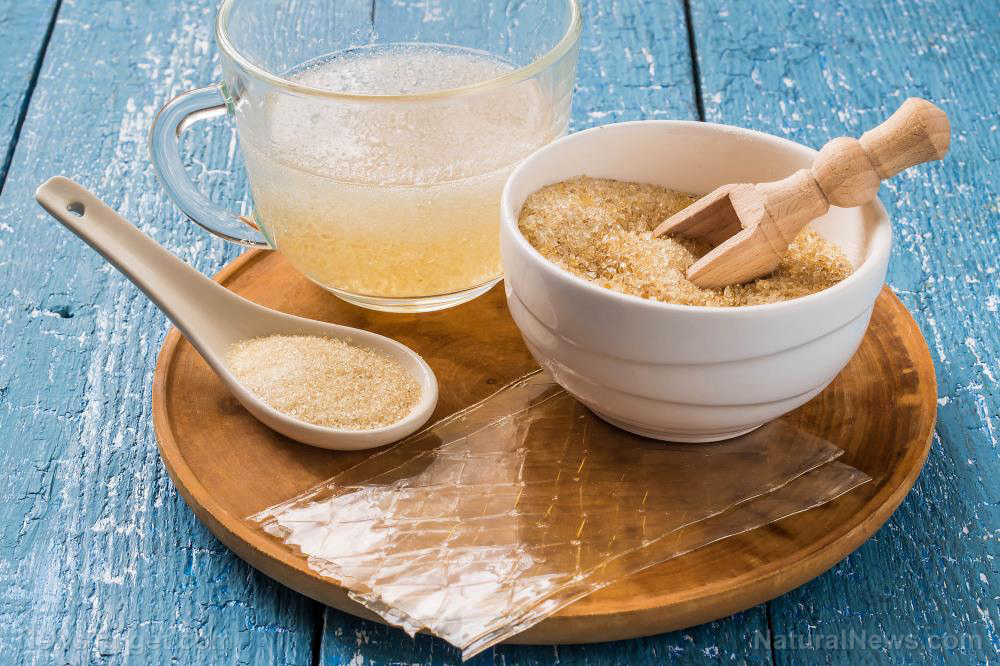Say goodbye to summer pests: Unleash the power of basil, vinegar and coffee in your home
07/22/2025 / By Zoey Sky

- Natural repellents are safe and effective. They protect your home without exposing your family and pets to harmful chemicals.
- Plants and kitchen items are powerful allies. Many common plants and household items can be used to deter insects.
- Natural repellents like cinnamon and vinegar are versatile and cost-effective. Natural solutions are often multi-functional, easy to prepare and inexpensive.
- Choosing natural repellents reduces chemical pollution and contributes to a healthier planet.
- Embracing natural pest control is a return to time-tested methods that are both effective and sustainable. By opting for natural repellents, you not only protect your home from pests but also embrace a more sustainable and healthier lifestyle.
As the warm months approach, so does the inevitable invasion of insects seeking refuge in your home. While commercial bug repellents promise quick fixes, they often come with a host of potentially harmful chemicals.
Fortunately, nature offers a treasure trove of effective, safe and budget-friendly alternatives that can keep your home bug-free without compromising your health or the environment.
Below are some natural repellents for both indoor and outdoor use, as well as the many benefits of going the natural route. (h/t to TheEpochTimes.com)
Botanical allies: Plants that repel insects naturally
One of the most compelling advantages of homemade bug repellents is the ability to control their ingredients. Unlike commercial products that may contain synthetic chemicals, natural repellents allow you to use everyday items from your pantry or garden. This ensures the safety of your family and pets, and contributes to a healthier planet by reducing chemical runoff and pollution.
Natural repellents are often multi-functional. Many of these ingredients, such as cinnamon and citrus, deter bugs and add a pleasant aroma to your home, offering a touch of aromatherapy. Natural repellents are also easy to prepare, cost-effective and versatile in their application.
Plants have long been used as natural deterrents against a variety of pests. Basil, for instance, is a culinary favorite that mosquitoes and flies find repulsive.
Planting basil around your porch or patio or keeping a pot in your kitchen window can help keep these insects at bay. Other effective plants include:
- Ageratum
- Beautyberry
- Bee balm
- Catmint
- Catnip
- Citronella
- Eucalyptus
- Fennel
- Garlic
- Lantana
- Lavender
- Lemon balm
- Lemon eucalyptus
- Lemon thyme
- Lemongrass
- Marigolds
- Mint
- Mums
- Pennyroyal
- Rosemary
- Sage
- Scented geranium
- Wormwood
Herbs like lavender and rosemary can add beauty and fragrance to your garden. They also help repel mosquitoes, flies and other insects. Plants like eucalyptus and wormwood are known for their insect-repelling properties and can be strategically placed around your home to deter pests.
Plants like citronella and lemongrass mask scents that attract mosquitoes and can be planted in gardens or placed in pots around outdoor seating areas.
Kitchen staples as insect deterrents
Your kitchen pantry is a goldmine of natural bug repellents. Here are some common items that can double as effective pest control solutions:
Bay leaves
Roaches, spiders, ants and silverfish detest the scent of bay leaves. Crush fresh or dried leaves and place them in areas where insects are likely to enter or hide. (Related: Protect your home with a non-toxic solution against pesky insects.)
Boric acid
Boric acid is a natural insecticide that can be mixed with flour and sugar to form tablets, or sprinkled in areas roaches and ants are present.
A potent solution, boric acid should be used with caution around children and pets.
Cayenne pepper and cinnamon
Cayenne pepper and cinnamon are spices that repel a wide range of insects, including ants, spiders and mosquitoes. Place cinnamon sticks in closets and cupboards or sprinkle powdered cinnamon at entry points.
Cayenne pepper can be used similarly and is also effective in deterring ants from plants.
Citrus peels
The limonene and linalool in citrus peels can repel flies and ants.
Rub used citrus peels on windowsills and doorways, or create a citrus-infused vinegar spray for a natural cleaning solution that also doubles as a bug repellent.
Cloves
Cloves contain eugenol, a compound found in some anti-flea and -tick shampoos. Place cloves or clove-filled sachets in areas prone to silverfish and ladybugs.
If you have pets, avoid cloves because they can be toxic.
Coffee grounds
The caffeine and diterpenes in coffee grounds repel ants, flies and mosquitoes. Sprinkle them around your home or use them in potted plants to deter ants while providing an organic nitrogen boost. Burning used coffee grounds in an aluminum foil bowl can also help keep mosquitoes away outdoors.
Vinegar
Vinegar is a staple in many households and a powerful tool in natural pest control. Wiping down ant trails with full-strength white vinegar disrupts their pheromone paths, effectively deterring them.
A bowl of vinegar placed on a windowsill or a 50/50 vinegar-water mix in a spray bottle can repel ants and spiders and even kill soft-bodied insects like gnats and fruit flies upon contact. For a more targeted approach, create a fly trap by covering a bowl of apple cider vinegar with plastic wrap and punching a few holes into it.
The shift towards natural repellents is not just a trend but a return to traditional methods that have stood the test of time. By choosing natural solutions, you can protect your home from pests and contribute to a more sustainable and healthier lifestyle.
The next time you reach for a bug repellent, consider natural alternatives that are as kind to the environment as they are effective against insects.
Visit Homesteading.news for more natural pest control alternatives and cleaning solutions. You can also check out Health Ranger Store and Brighteon Store for essential supplies for your emergency stockpile.
Watch the video below to learn more about UHMPWE braided Survival Cord and Bug Spray, two essential prepping tools for your bug-out bag.
This video is from the Health Ranger Store channel on Brighteon.com.
More related stories:
Prepper’s guide to using ESSENTIAL OILS for skincare.
Survival essentials: The little-known uses of vinegar.
Natural cleaning alternatives: Safe products for a healthier home.
Sources include:
Submit a correction >>
Tagged Under:
bug repellent, bugs, emergency preparedness, environment, green living, home gardening, homesteading, how-to, insects, natural ingredients, Non Toxic, off grid, pest control, pest repellents, pests, preparedness, prepper, prepping, prepping supplies, prevention, repellents, SHTF, survival, survival stockpile, survival supplies, tips, toxic chemicals
This article may contain statements that reflect the opinion of the author





















